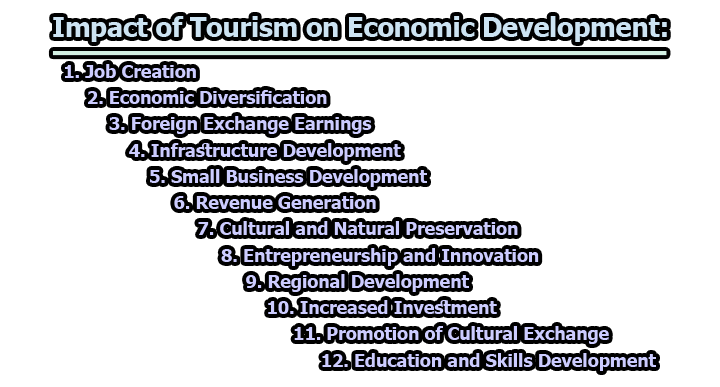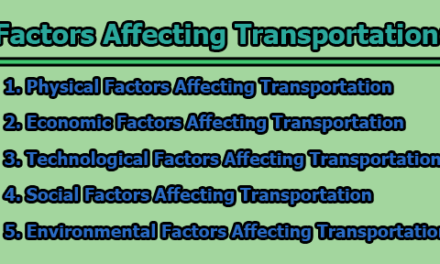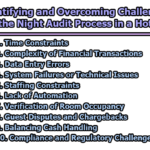Impact of Tourism on Economic Development:
Tourism’s impact on economic development is a subject of enduring interest and relevance in today’s interconnected world. The tourism industry, with its capacity to create jobs, diversify economies, and generate foreign exchange, plays a pivotal role in shaping the economic landscapes of nations. This impact, however, is not unidimensional; it reaches far beyond the simple act of travel. The profound implications of tourism encompass job creation, infrastructure development, cultural exchange, and much more. In the rest of this article, we are going to explore the impact of tourism on economic development.
1. Job Creation: Tourism is a labor-intensive industry that creates a wide range of job opportunities, both directly and indirectly. These jobs can include hotel staff, tour guides, drivers, restaurant workers, souvenir shop owners, and more. In many developing countries, where formal employment opportunities may be limited, tourism plays a vital role in reducing unemployment and underemployment. For example, in countries with beautiful natural landscapes or historical sites, local residents often find employment in activities related to guiding tourists, offering cultural experiences, or providing transportation services.
Tourism-related jobs often have a cascading effect on the economy. When people have jobs, they have disposable income, which they spend on goods and services, stimulating other sectors such as retail, transportation, and entertainment. This, in turn, creates more job opportunities in these related industries.
2. Economic Diversification: Tourism can help diversify an economy, reducing its reliance on a single industry or sector. When a country is heavily dependent on one sector, such as agriculture, mining, or manufacturing, it can be vulnerable to fluctuations in global commodity prices or other economic shocks. Tourism provides a source of income that can be less vulnerable to global economic conditions.
For example, a country heavily reliant on oil exports might be severely affected by falling oil prices. By investing in tourism and promoting a diverse range of attractions, such as cultural heritage, ecotourism, and adventure tourism, the economy becomes more resilient. A diversified economy can better withstand external economic shocks, providing a safety net for both the government and its citizens.
3. Foreign Exchange Earnings: Tourism involves the influx of foreign visitors who spend money in the host country. These expenditures translate into foreign exchange earnings. Foreign currency earned through tourism can be used for various purposes:
- Importing goods and services that cannot be produced domestically.
- Paying off foreign debt, which can lead to more favorable terms on loans.
- Stabilizing the exchange rate by increasing the supply of foreign currency.
- Building foreign reserves, which can be used to support the currency and pay for essential imports during economic crises.
These foreign exchange earnings are often viewed as a significant economic benefit, especially for countries with a trade deficit or limited sources of foreign currency.
4. Infrastructure Development: To attract tourists, destinations must invest in infrastructure development. This can include building and upgrading transportation facilities, such as airports, roads, and public transportation. Additionally, investments in accommodations, restaurants, and recreational facilities are necessary. The improvements in infrastructure benefit both tourists and the local population.
Infrastructure development not only enhances the tourist experience but also raises the overall quality of life for residents. Access to better transportation, utilities, and public spaces can improve living conditions and create a more attractive environment for businesses and residents alike.
5. Small Business Development: Tourism fosters the growth of small and medium-sized enterprises (SMEs). These businesses can include family-run guesthouses, local restaurants, artisan shops, and tour operators. The demand generated by tourism provides these enterprises with a customer base and opportunities for growth.
These SMEs often have a strong connection to the local culture and environment, which adds to the authenticity of the tourist experience. They contribute to the preservation of local traditions and help spread the economic benefits of tourism to smaller communities that may not have access to larger corporate investments.
Moreover, small business development creates jobs and stimulates economic activity in local communities. Entrepreneurs may emerge from these small businesses, further fostering innovation and economic growth.
6. Revenue Generation: Tourism is a significant source of government revenue through various forms of taxation. Governments can collect taxes on tourism-related activities such as hotel stays, restaurant dining, and sales of goods and services to tourists. These tax revenues can contribute to public finances and be reinvested in various sectors like education, healthcare, and infrastructure development. Additionally, such revenue can help governments reduce budget deficits and provide essential public services to their citizens.
7. Cultural and Natural Preservation: The economic value of cultural heritage and natural landscapes often becomes apparent when these assets attract tourists. As communities and governments recognize the economic potential of these assets, there is an incentive to protect and preserve them. This can lead to investments in conservation efforts, historic preservation, and sustainable environmental practices.
By preserving cultural and natural resources, destinations maintain their attractiveness to tourists over the long term, ensuring a sustainable source of income. This preservation also benefits the local population by protecting their heritage and environment.
8. Entrepreneurship and Innovation: The tourism industry encourages entrepreneurship and innovation. Entrepreneurs often identify unique tourism experiences, services, or products that can attract visitors. For instance, they may develop eco-friendly lodging options, adventure tours, or culinary experiences that cater to tourists’ interests.
Entrepreneurship in the tourism sector not only creates jobs but also fosters innovation, which can have spillover effects in other sectors of the economy. Successful tourism-related businesses may inspire other entrepreneurs to start ventures in different industries, ultimately driving economic growth and diversification.
9. Regional Development: Tourism has the potential to promote regional development by drawing tourists to less-visited areas. Many countries focus their tourism efforts on popular destinations, leading to overcrowding in those areas. However, when tourism is strategically developed in lesser-known regions, it can disperse the economic benefits more evenly.
This dispersal can alleviate congestion in major cities and promote balanced economic development. Local communities in less-visited regions can benefit from increased income, employment opportunities, and improved infrastructure. This balanced regional development can reduce economic disparities and improve the overall standard of living in the country.
10. Increased Investment: Successful tourism destinations often attract investments, both domestic and foreign. Investors are drawn to areas with a thriving tourism sector due to the potential for high returns and stable income. The stability and growth of the tourism industry can boost investor confidence, leading to investments not only in tourism-related businesses but also in other sectors, such as real estate, infrastructure, and services.
These investments can contribute to economic development by expanding the overall business landscape and creating opportunities for local businesses to supply goods and services to the expanding tourism sector.
11. Promotion of Cultural Exchange: Tourism promotes cultural exchange as tourists from different parts of the world visit destinations with unique traditions, customs, and lifestyles. This exposure to diverse cultures can lead to a better understanding of different societies and foster international relations and trade opportunities. It can also encourage the preservation of cultural heritage, as local communities recognize the economic value of their traditions.
When tourists engage with local cultures, they often contribute to the local economy by purchasing handicrafts, experiencing local cuisine, or attending cultural events. These activities not only generate income for local artisans and businesses but also support the continuation of traditional practices and art forms.
Furthermore, cultural exchange can create a positive image of the destination in the minds of tourists, making them more likely to return or recommend the location to others. This repeat business and positive word-of-mouth promotion can provide a stable source of income over time.
12. Education and Skills Development: The tourism industry provides opportunities for education and skills development. Employees in the tourism sector often receive training in areas such as hospitality, customer service, language proficiency, and cultural knowledge. This training can lead to the development of a skilled workforce with transferable skills.
For example, individuals working in the hospitality sector gain expertise in providing exceptional customer service, a skill that can be applied in other service industries such as healthcare, finance, or retail. Language skills acquired through interactions with tourists can also be beneficial in various job roles, including translation and international business.
Moreover, the tourism industry often collaborates with educational institutions to provide vocational training and internship programs. This partnership between academia and the tourism sector can help bridge the gap between education and employment, preparing individuals for a wide range of career opportunities and contributing to human capital development.
In conclusion, the impact of tourism on economic development is both significant and multifaceted. It creates employment opportunities, fosters diversification, and bolsters government revenue. Tourism contributes to infrastructure development, preserves cultural heritage, and encourages entrepreneurship and innovation. Moreover, it can promote regional development, attract investments, facilitate cultural exchange, and enhance education and skills development. However, realizing these positive impacts necessitates careful planning, sustainable practices, and a focus on community well-being. To harness the full potential of tourism for economic development, nations must balance economic growth with the preservation of cultural and natural assets and ensure that the benefits of tourism are shared equitably among all stakeholders. The sustainable development of tourism holds the key to harnessing its vast potential while safeguarding the unique attributes that make destinations desirable to travelers around the world.

Former Student at Rajshahi University










